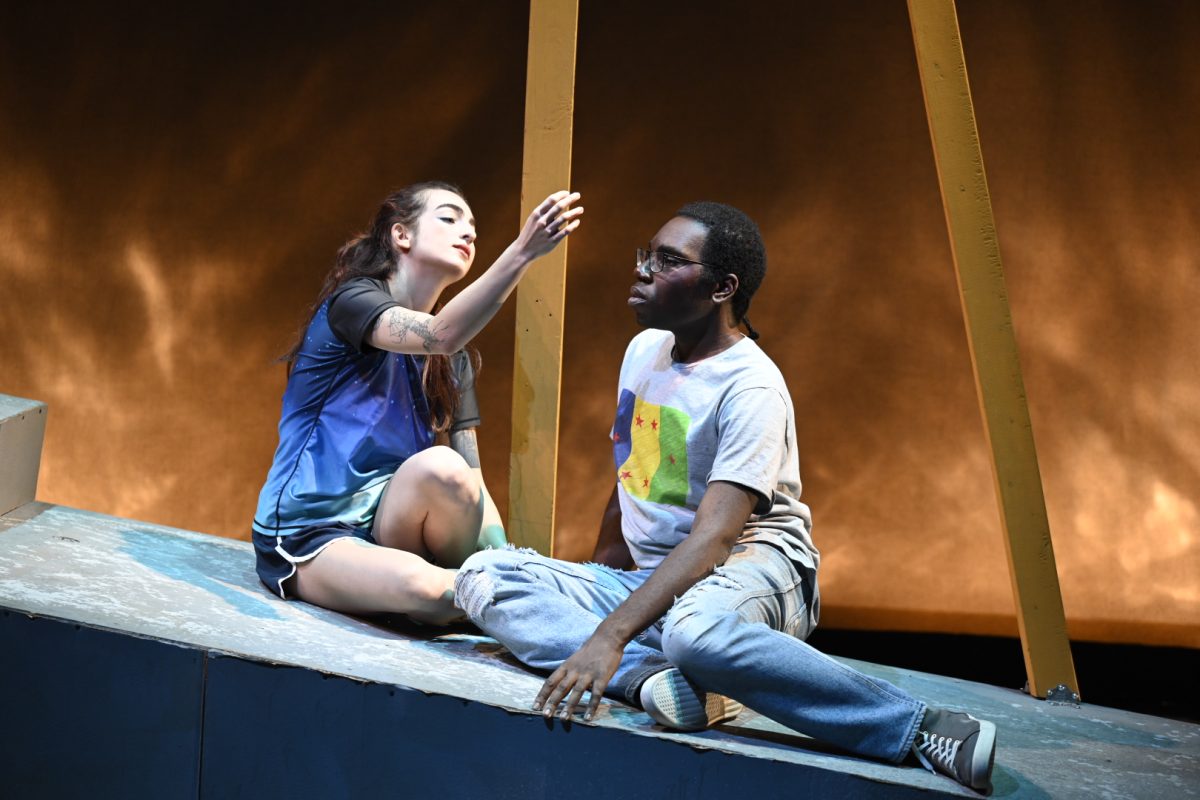The saxophone of Rashaan Roland Kirk’s “The Inflated Tear” wails in warning, distress and desperation as we follow a Black man in a trench coat in Chicago at night. He bursts into a club, shows off an FBI badge and shakes down the members of The Crowns shooting pool there. The red car he’s been eyeing outside is stolen apparently… But what if he’s not FBI at all? The whole time, his hat’s downward tilt obscures his face, a disguise on top of a disguise. These opening moments of King’s “Judas and the Black Messiah” command our attention and place all of its strengths on full blast: mystery, questions of identity and self-preservation and that saxophone, which seems to be fighting for dear life for space, clawing into a world set against it with each pained note.
SUMO screened this film to celebrate the beginning of Black History Month along with “Moonlight,” another well-regarded Black directed and starred film. I do love “Moonlight,” but there’s an entirely different visceral chord that “Black Messiah” strikes for me, found within that sense of desperation that is worn on every character’s face and heard in the music of every dejected corner of the film’s Chicago. We open with a montage that sets us in our historical moment, when Dr. Martin Luther King Jr. and Malcom X have been shot and the Black community searches for a messiah to stand up for their interests… which the white-controlled FBI cannot allow to happen. The Illinois chapter of the Black Panthers shows signs of one’s appearance in Fred Hampton (Daniel Kaluuya): a gifted orator, poet and fervent fighter for civil rights. Our previously mentioned FBI impersonator, Bill O’Neal (Lakeith Stanfield), is given two options when his attempt to con his way into a car is busted: Serve several years in prison, or act as the FBI’s Judas to this rising Black Messiah.
Hampton’s speeches constantly discuss contradictions, the ways in which being Black in America results in being tugged on all sides. O’Neill is, himself, representative of this contradiction. When he’s caught at the beginning, an FBI agent named Roy Mitchell (Jesse Plemmons) grills him to see where his sentiments lie, and O’Neill says that he wasn’t terribly upset when King and Malcom X were assassinated. Perhaps he’s playing it off for safety, but then again, what we know about him from that opening scene (and from what we’ve heard from that terrified saxophone) is that he’s simply attempting to survive. The problem lies in that once he enters the belly of the beast, these contradictory forces start tugging on him harder. He gets close to Hampton and finds community to combat his loneliness. The one thing I don’t buy is the film’s assertion that Roy served as a role model to O’Neill; I didn’t really see that happening on screen. But, what I find infinitely more compelling is how seductive the status and privilege that comes with the job is for him. Our Judas doesn’t get thirty pieces of silver, but he gets a place at the table. He’s treated to fancy meals (where he can summon the waiter with a snap of his fingers), and he gets a car as part of the gig. He is given a very limited taste of how the other half lives, which clashes strongly with the growing sensation of kinship he feels with the Panthers and the belief in their cause which gradually sneaks up on him. In a sense, his nature as a Black man working for the FBI, a white supremacist organization, is, in itself, a contradiction. While the film’s tension lies in seeing if O’Neill will be discovered, it’s this tantalizing contradiction which gives that conflict immediacy.
So too does Hampton waltz into contradictions, as he struggles to find a proper balance between the personal and political. In his work, he meets a lovely girl, Deborah (Dominique Fishback), with whom he will have a child. Thus far, he shows us that he is willing to die for this cause. There is no more valiant death for a Black revolutionary, we’re told, than to die in service of the advancement of Black people, fighting the pigs. But how does he reconcile with the fact that this noble death may leave his child fatherless? So too does he have to confront the difficult reality of putting his friends in harm’s way, and many of the Panthers we get to know here don’t manage to get to the other side of the film unscathed. Hampton is a radical, but Kaluuya plays him as a deeply frustrated human being, precisely what the FBI doesn’t want people to see him as. The big whoop over Jesus Christ, the Messiah after all, was that he was human first, and Kaluuya embodies the same in Hampton. He carries both that violent anger and that heartbreaking melancholy in the way he moves, and especially in the way he delivers speeches. Stanfield’s performance shouldn’t go unnoticed here either, packing a fittingly quiet, patient presence opposite Kaluuya, albeit likewise showing the weight of these contradictions. If the contradictions of Kaluuya’s Hampton boil him to the point of bursting, then those of Stanfield’s O’Neill gnaw at him, each metaphorical teeth mark leaving a deeper gash in his soul than the previous.
And then, there is that saxophone, which I keep coming back to. It only appears twice, but those notes continue haunting my subconscious. Its dissonance embodies the contradictory miasma which swirls around the hearts and minds of our unwittingly dueling protagonists. It repeats those same few notes with dissatisfaction, trying harder and harder to alleviate that paradoxical pain. It isn’t just about tears, but inflated tears: a pain which continues growing but never subsides. The fight continues and the tear tracks never fade, and these characters struggle for their rights and their survival, “Black Messiah” beckons a viewer in with great strength, pulling them in note by suffering note.
Rating: 4.5/5












